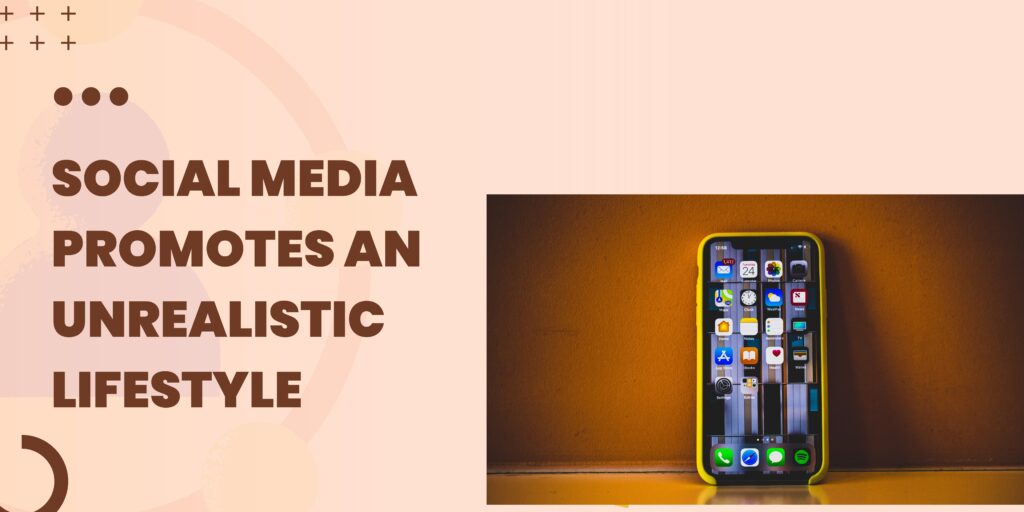In today’s society, social media platforms have become ubiquitous. However, these platforms also promote an unrealistic lifestyle that can adversely affect mental health. It’s no lie that when people get dressed up to go out with their friends and family that they are going to post pictures of it on some form of social media platform. There’s too many “social standards” that users think that they need to uphold and we as a society need to bring that to a stop. The steep rise of social media has everyone in a chokehold. It’s not a bad thing in and of itself, but the reality of it is social media promotes an unrealistic lifestyle and it conditions our brains to normalize the extremely unhealthy downsides of social media.
Research proves that there is a strong correlation between how much social media usage you have to the high rates of anxiety, depression, and low self-esteem among teenagers. “Social media has also played a huge role in issues within self-confidence and how we see ourselves on a day-to-day basis. A study done by The Huffington Post found that 60% of people using social media say that it has impacted their self-esteem in a negative way. They also established that 51% of people believe that social media has also made them more self-conscious about their appearance.” (Brauch).
Imagine scrolling through your feed and you’re bombarded with pictures of seemingly perfect lives and bodies. Do you see how, especially to our younger audiences, it creates a distorted perception of reality. This is exacerbated by influencers who post filters, photoshop, and enhancements on their pictures and videos. This further fuels feelings of inadequacy among other users.
In addition, people who have preexisting mental health conditions tend to spend more
time on social media. People who are already in this category are more likely to self-objectify
themselves and their bodies. You could argue that you see this most commonly in women. Women
idolize the thin body concept and the comparison between their body and how it looks to other women. Most of them, subconsciously, are likely to feel worse about their bodies and themselves after they spend time on social media.
The paradox lies in the validation that people so desperately want from social media. It also offers an illusion of acceptance through how many likes and comments one gets such as, “Do you think so and so will like my picture?”, “How can I get more followers than them?”, “Why does this person get to go on a nice vacation and not me?”, and “Why is she prettier than me?” All of this pressure to post the perfect picture cultivates an environment for comparison and self-doubt. “For many individuals, the constant exposure to idealized representations leads to detrimental psychological outcomes such as body dissatisfaction and increased anxiety.” (Hemendinger)
In order to fight the permeating influence of unrealistic lifestyles promoted by social
media, it is important for users to engage with these platforms mindfully. You need to recognize
the curated nature of online content, which will help individuals maintain their self-esteem and be
able to still grow authentic connections outside of your screen. Ultimately, societal change
requires not only individual awareness but also systemic interventions aimed at mitigating these
harmful effects on mental health.
